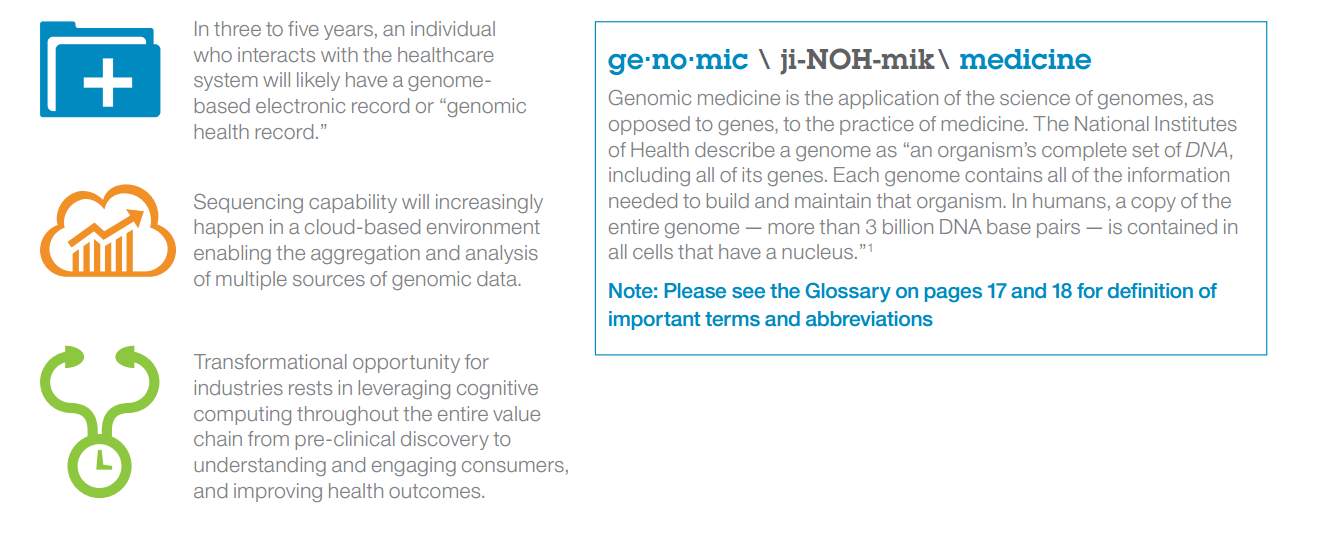After the Human Genome Project was completed in 2003, early successes in genomic medicine fell short of the initial high expectations. But today, a potent mix of influences—including innovation in biology and technology, market demand and consumerism—is furthering an evolution that crosses industries.
Healthcare providers can now personalize care plans thanks to lower sequencing costs that allow genomic data to be combined with electronic health data. Life sciences companies can develop targeted therapies that prevent and alleviate disease symptoms. To capitalize on new advances in science, cognitive computing, analytics and drug discovery, senior leaders across the ecosystem should act quickly to: make genomic medicine a key component of enterprise strategy; address relevant skill gaps; and determine how partnering can bolster critical capabilities.
Three major changes transforming genomic medicine are underway:
(1) The growing use of a new genomic health record
In the next three to five years, it is likely that an individual who interacts with the healthcare system will have a genome-based electronic record or “genomic health record.” It will be used in tandem with other electronic healthcare tools for decision support, prevention, and customized testing and treatments. At first, the record may not contain the whole genome sequence, but instead perhaps the results from testing specific genes.
(2) Greater benefits for stakeholders in each genomic medicine cornerstones
As the genomic health record evolves, each of the three cornerstones of genomic medicine stands to benefit substantially:
• Sequencing—Processing raw data into usable form.
• Translational medicine—Finding relationship between genome and phenotypes and discovering/developing treatments.
• Personalized healthcare—Applying useful clinical insights to patients.
(3) Opportunities for radical industry transformation
The transformational opportunity for industries rests in leveraging cognitive computing throughout the entire value chain; from pre-clinical discovery to understanding and engaging consumers, and improving health outcomes.
In this sponsored white paper from IBM Healthcare & Life Sciences, you will learn how genomic medicine will be a “game-changer” for important stakeholders that include patients, providers, researchers, payors, diagnostic companies, policy makers, life sciences and governments.


